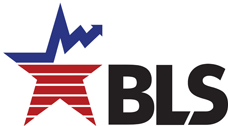- Joined
- Aug 5, 2022
- Messages
- 9,688
- Reaction score
- 14,047
- Gender
- Male
- Political Leaning
- Liberal
Because you are comparing to historical data which did not have the kind of high margin / easily replicable technology dominating the marketsFirst, what difference does it make in the context of my point?
Ya, that's why I said this:But, addressing your pont....IT profits didn't begin after 2019, right? I mean, I've been in IT for going on 27 years, and while IT wasn't driving the kinds of profits in the 80's that it is today, it's been a significant sector for at least the past 20 years?
Info tech is a high margin business compared to "legacy" sectors. Not sure comparing corporate earnings at large prior to say 2005 is useful, unless you split by sector
....
Oh it absolutely can. Post 2019/COVID period has been driven massively by tech investment, graphics cards, digital currency, AI research, data centers... look at the PE ratios & market caps of the top 10 companies in the SP500So the radical difference between the pre and post 2019 period cannot be explained away by the effect info tech has had on the economy when it comes to corporate profits driving inflation.
You were comparing 80s/90s corporate profits data to modern massively scalable software architectures + massive investments in data centers, as if to somehow prove that it is "greed" driving inflation. My point is your comparison to the 79-19 average is a bad comparison. Most other sectors are fairly well mature & saturated with high competition.
Sure, it's possible it's all due to "greed" and not the trillions $$$ that diluted the money supply (along with the inability for suppliers to ramp as quickly as demand did after the shutdown). But you are going to need to do better to prove your claim than comparing 80s/90s data.Input costs are a reflection of inflation, in the first two years of Covid, we see input costs up 11.5% over the 79-19 average, but corporate profits is over 40% compared to the 79-19 average.
It's greed.


